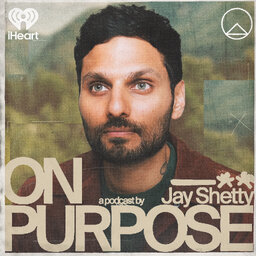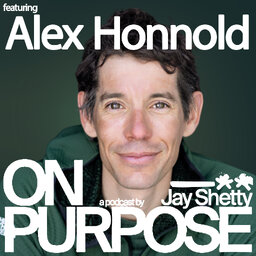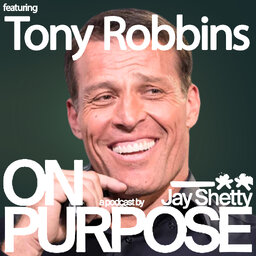Scott O’Neil ON: Quality Time Over Quantity Time & Why Presence is the Key to Deeper Relationships in Life, Love, and Work
Scott O'Neil sits down with Jay Shetty to talk about positive intent. It’s in assuming a positive intent in all that we do where we can calmly and level-headedly make important decisions, resolve conflicts, and engage in difficult conversations. And when we transition into another phase in our life, we all need to surround ourselves with people who can give us constructive, honest feedback.
Scott is the Chief Executive Officer of Harris Blitzer Sports & Entertainment, an organization with the mission of building passionate, high-performing teams that inspire people to enhance the communities where its teams live, work, play and win. With more than 20 years of experience in the NBA, NHL and NFL, O’Neil has earned a reputation as a leader of leaders and is one of the most connected, dynamic and driven executives in the industry today.
Get your copy of Think Like a Monk today by clicking this link!
https://thinklikeamonkbook.com/
What We Discuss:
- 00:00 Intro
- 02:34 Finding you “be where your feet are” moment
- 06:23 Have the community control their destiny
- 09:12 Common language: Assume Positive Intent (API)
- 13:20 When no one is assuming positive intent
- 19:54 Learning a lot more when you trip and fall
- 22:47 A formula for your mental health
- 27:12 We all just need to ask for help if we need it
- 31:41 Find your true perspective
- 37:42 Find your own morning routine to start your day
- 44:38 Try to track your happy thoughts daily
- 47:15 Seek authentic feedback from people who can help you grow
- 56:15 Transitions are hard for a lot of people
- 57:52 Hunt and Kill vs Seek and Grow
- 01:04:26 Why it’s hard to say NO
- 01:07:58 Three most important things: health, sadhana, savor
- 01:13:19 Be present and create meaningful moments with your family
- 01:15:59 It’s the positive things that you remember
- 01:18:29 How not to get distracted and stay in the moment
- 01:21:07 Scott on Final Five
Like this show? Please leave us a review here - even one sentence helps! Post a screenshot of you listening on Instagram & tag us so we can thank you personally!
Episode Resources:
- Scott O'Neil | Twitter
- Scott O'Neil | LinkedIn
- Be Where Your Feet Are
Achieve success in every area of your life with Jay Shetty’s Genius Community. Join over 10,000 members taking their holistic well-being to the next level today, at https://shetty.cc/OnPurposeGenius
 On Purpose with Jay Shetty
On Purpose with Jay Shetty


